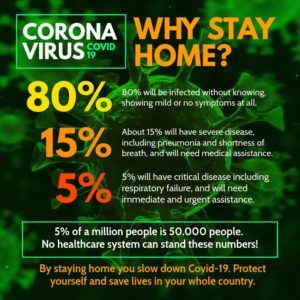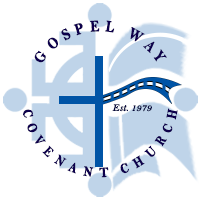COVID-19 IMPACT: 1 DOCUMENT
Unemployment claim/notice
Notice from employer of layoff/furlough/reduced hours
Explanation or letter if gig-worker, self-employed, independent contractor, etc.
Immunocompromised medical condition
INCOME VERIFICATION: 1 DOCUMENT (<60% AMI)
Tax filing/Other IRS
Other assistance eligibility (SNAP, Medicaid, WIC)
Currently lives in <60% AMI Unit (CHA/HUD)
Prior pay stubs
Bank statement showing prior employer direct deposits/wages
ADDRESS VERIFICATION: 1 DOCUMENT
Lease document
Mortgage document
Utility bill (internet, phone, gas, water, power, etc.)
Government issued ID

|
THE COLLABORATIVE FOR CHILDREN’S HEALTH POLICY COVID RESOURCES
Dear Child Health Advocates, During this unprecedented health crisis, it is important that we stay informed and work together to support the needs of children and families across Illinois. The mission of the collaborative is to transform child and adolescent health and well-being in Illinois by partnering to advance policies and investments that will achieve health equity for youth, families and communities. It is now more important than ever we work together and support each other’s efforts to address the unique and complex challenges that emerge from the Novel Coronavirus (COVID-19) public health crisis. As state government moves rapidly to respond to the unprecedented situation with COVID-19, we want to provide general information on COVID-19 to our community members. Below you’ll find a list of recommended resources related to COVID-19. Please note that the situation is rapidly evolving. For the most up-to-date information, please continue to refer back to the resources listed below. Although we know that children present with a more mild form of the virus, COVID-19 will undoubtedly impact the lives of children and their families across the state. We hope that these resources will help you and the families you serve during this difficult time. Be well, friends. Take care of yourselves and one another. |
New Guidance about COVID-19 Economic Impact Payments for Social Security and Supplemental Security Income (SSI) Beneficiaries from Social Security Commissioner Andrew Saul
“The Treasury Department launched a new web tool allowing quick registration for Economic Impact Payments for eligible individuals who do not normally file a tax return, and also announced that it would begin making automatic payments. However, for some people receiving benefits from the Social Security Administration–specifically those who have dependent children under the age of 17–it is to their advantage to go to this portal to ensure they also get the $500 per dependent Economic Impact Payment. I encourage them to do this as soon as possible, and want to provide the following details:
People who receive Social Security retirement, survivors, or disability insurance benefits and who did not file a tax return for 2018 or 2019 and who have qualifying children under age 17 should now go to the IRS’s webpage at www.irs.gov/coronavirus/economic-impact-payments to enter their information instead of waiting for their automatic $1,200 Economic Impact Payment. By taking proactive steps to enter information on the IRS website about them and their qualifying children, they will also receive the $500 per dependent child payment in addition to their $1,200 individual payment. If Social Security beneficiaries in this group do not provide their information to the IRS soon, they will have to wait to receive their $500 per qualifying child.
The same new guidance also applies to SSI recipients, especially those who have qualifying children under age 17. To receive the full amount of the Economic Impact Payments you and your family are eligible for, go to the IRS’s Non-Filers: Enter Payment Info page at www.irs.gov/coronavirus/economic-impact-payments and provide information about yourself and your qualifying children.
Additionally, any new beneficiaries since January 1, 2020, of either Social Security or SSI benefits, who did not file a tax return for 2018 or 2019, will also need to go to the IRS’s Non-Filers website to enter their information.
Lastly, for Social Security retirement, survivors, or disability beneficiaries who do not have qualifying children under age 17, you do not need to take any action with the IRS. You will automatically receive your $1,200 economic impact payment directly from the IRS as long as you received an SSA-1099 for 2019.
For SSI recipients who do not have qualifying children under age 17, we continue to work closely with Treasury in our efforts to make these payments automatically. Please note that we will not consider Economic Impact Payments as income for SSI recipients, and the payments are excluded from resources for 12 months.
The eligibility requirements and other information about the Economic Impact Payments can be found here: www.irs.gov/coronavirus/economic-impact-payment-information-center. In addition, please continue to visit the IRS at www.irs.gov/coronavirus for the latest information.
We will continue to update Social Security’s COVID-19 web page at www.socialsecurity.gov/coronavirus/ as further details become available.”
# # #
To get more Social Security news, follow the Press Office on Twitter @SSAPress.
FREE VIRTUAL MENTAL HEALTH SERVICES
Rainbows for All Children facilitator, Veronica Vyazovsky, with Mosaic Therapy in Chicago is currently offering six FREE virtual counseling sessions for children and families who are otherwise not able to receive mental health services at this time. For more information, please click HERE to view their website or HERE for the pdf flyer. She and her daughter also put together a video about the clinic.
This is entirely run by volunteers–Veronica is leading the charge (as a volunteer), and all of the mental health professionals (who are carefully screened) are doing this pro bono. Mosaic Therapy is a non-profit 501c3 organization, just like Rainbows.
Illinois SNAP recipients will begin receiving maximum benefit amounts this week
Customers do not need to call or visit an office; Increased SNAP benefits will be loaded directly on Link cards
CHICAGO/SPRINGFIELD – The Illinois Department of Human Services announced today that more than 450,000 Illinois households will receive additional Supplemental Nutrition Assistance Program (SNAP) benefits beginning this Tuesday, April 8th. All who are eligible for the additional benefits should receive them by April 20th. The additional funds are intended to help Illinoisans obtain food and support for their families during the COVID-19 pandemic. The maximum SNAP benefit amounts will be implemented for April and May.
“No Illinoisan should ever have to worry about where their next meal is coming from, especially during an ongoing public health emergency,” said Governor JB Pritzker. “Expanding the amount of Supplemental Nutrition Assistance Program benefits people receive will help families stay safe and healthy in the coming months.”
Increased benefits will be automatically loaded onto SNAP recipients’ Link cards, and there is no need for anyone to re-apply, visit an office, or call. All new applications authorized in April will also receive the maximum allotment for their household size.
“We’re exploring every avenue we can to provide extra support for Illinoisans. IDHS has applied for several waivers to make it easier for people looking for food assistance,” said IDHS Secretary Grace B. Hou. “Less documentation is required, in-person requirements are waived, and now we’ll be able to increase the amounts loaded into Link cards by a significant amount for many families.”
The federal Families First Coronavirus Response Act gives states the option to provide SNAP households with the maximum SNAP allotment, which is based on household size. SNAP households which are not currently receiving the maximum allotment will receive additional SNAP benefits which bring their allotment amount to the maximum. Households already receiving the maximum benefit will not receive additional benefits.
Maximum amounts per household size are as follows:
|
Number in SNAP household |
Maximum benefit |
|
1 |
$194 |
|
2 |
$355 |
|
3 |
$509 |
|
4 |
$646 |
|
5 |
$768 |
|
6 |
$921 |
|
7 |
$1,018 |
|
8 |
$1,164 |
|
Each additional person |
Add $146 |
Illinois SNAP recipients receive their benefits at different times each month, so increased SNAP benefits will be loaded on different dates for SNAP recipients.
The Supplemental Nutrition Assistance Program provides food assistance to low-income people and families living in the United States. It is a federal aid program administered by the Food and Nutrition Service of the U.S. Department of Agriculture. Distribution of benefits occurs at the state level.
Attachments
RESOURCES FOR CHICAGO RESIDENTS
- Housing Assistance – The Chicago Housing Authority (CHA) announced temporary rent deferment for residents of CHA-owned buildings until the end of statewide Stay at Home Order on May 1, 2020. CHA will not issue any late rent notices during this period and reminds residents and others that CHA does not charge late fees for overdue rent. Additionally, the Cook County Sheriff’s Department has suspended enforcement of eviction orders as of March 14, 2020, and the U.S. Department of Housing and Urban Development issued a 60-day moratorium on foreclosures and evictions of FHA-backed mortgages on March 18, 2020.
- Arts for Illinois Relief Fund – A new ‘Arts for Illinois Relief Fund’ will provide financial assistance to artists, artisans, and cultural organizations impacted by COVID-19. The fund is a partnership between the City of Chicago, the State of Illinois and the broader philanthropic community. To date, more than $4M has been committed from public and private sources to seed an upcoming statewide campaign that will provide additional funding to meet the growing and critical needs of the state’s creative sector. Individuals looking to apply or corporations and charitable foundations looking to donate can visit www.artsforillinois.org.
- Emergency Child Care – For as long as the Governor’s Stay at Home Executive Order is in place, there will be Emergency Child Care Centers open to provide care for the children of essential workers. The Illinois Department of Human Services (IDHS) is offering funds to assist child care programs that opt to open and provide child care for the children of essential workers. Check out the Guidelines and Application for Child Care Programs. Fore more information, visit the State’s Emergency Child Care for Communities & Providers web page or see the updated Emergency Child Care FAQs.
- HIV Resource Hub – The AIDS Foundation of Chicago and Center on Halsted can help with emergency financial assistance (rent, utility payments, COVID-19-related support) for people who are living with HIV and who are HIV-negative and taking PrEP. They can also link people living with HIV to medications, case management, medical care, food, mental health, substance abuse treatment and more, or connect people vulnerable to HIV to PrEP, HIV testing, medical care and more. Services are available in Chicago, Cook County and the Collar Counties. Call the HIV Resource Hub at 1-844-HUB-4040 or learn more online.
- Smart 911 – Residents are encouraged to sign up for Smart 911 and provide critical medical information to 9-1-1 so they can help faster in an emergency. Residents can create a safety profile for themselves and family members with information on their current health conditions as well as information if they are experiencing COVID-19 symptoms or are under quarantine, and it will automatically be provided to first responders when calling 9-1-1.
